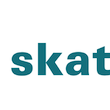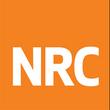Anunțuri de Angajare
- Detalii
- Categorie: Angajări
Environmental Specialist within Education Quality Improvement Project (EQIP)
Informațiile prezentate în articolul de mai jos pot să nu mai fie actuale sau să nu mai reflecte activitățile și programele curente. Anunțul este păstrat în arhivă pentru a asigura transparența și accesul public la informațiile despre inițiativele și proiectele implementate anterior.
Environmental Specialist within
Education Quality Improvement Project (EQIP)
Republic of Moldova
Education Quality Improvement Project
Credit No. IBRD-9536-MD
Reference No.: MD-PIU-NORLD-378851-CS-INDV
Assignment Title: Environmental Specialist to assist the NORLD to determine the potential environment impacts that can be generated by proposed activities supported under each EQIP component of the project.
The National Office for Regional and Local Development (NODRL) has received financing from the World Bank Group toward the cost of the Education Quality Improvement Project, and intends to apply part of the proceeds for individual consulting services.
Environmental Specialist will be responsible for assisting the Project to determine the potential environment impacts that can be generated by proposed activities supported under each EQIP component, as well as identify and propose the required mitigation actions to be taken. The Environmental Specialist will also conduct screening and ensure that environmental due diligence work environmental and social impact assessment ESMPs is prepared for the proposed investments. The specialist is responsible for ensuring the implementation and supervision of the ESMF and site-specific ESMPs, It will also support the Social Specialist in a) implementation and revisions of the Labor Management Procedures and b) answer to received grievances if these have environmental aspects.
The detailed Terms of Reference (TOR) for the assignment can be found at the following website: https://www.ondrl.gov.md or can be obtained at the address given below.
The NORLD now invites eligible Individual Consultants (“Consultants”) to indicate their interest in providing the Services. Interested Consultants should provide information demonstrating that they have the required qualifications and relevant experience to perform the Services.
The attention of interested Consultants is drawn to Section III, paragraphs, 3.14, 3.16, and 3.17 of the World Bank Procurement Regulations for IPF Borrowers – Procurement in Investment Project Financing. Goods, Works, Non-Consulting and Consulting Services dated November 2020 (hereinafter referred to as “Procurement Regulations”) setting forth the World Bank’s policy on conflict of interest and with the latest Guidelines on Preventing and Combating Fraud and Corruption in Projects Financed by IBRD Loans and IDA Credits.
A Consultant will be selected in accordance with the „Open Competitive Selection of Individual Consultants” method set out in the Procurement Regulations.
The applications should include letter of Expression of Interest, CV, and related recommendation letters, if any, together with a copy of CV in WORD format. Expressions of interest must be delivered in a written form to the address below (in person, or by mail, or by fax, or by e-mail) by October 3, 2023, 16:00 o’clock, Moldova time, indicating the assignment title in the subject line.
National Office for Regional and Local Development,
Stefan cel Mare 124, 3th floor,
mun. Chisinau, Republic of Moldova MD-2004
Tel/fax: 022 27 91 21
E-mail: office@ondrl.gov.md
Annex 1: Terms of Reference
Annex 1
TERMS OF REFERENCE
ENVIRONMENTAL SPECIALIST
BACKGROUND
„Education Quality Improvement” Project (EQIP) is a World Bank (hereinafter “the Bank”) - financed Project to be implemented between June 2023 and December 2029.
The total cost of the Project is US$ 59.8million equivalent comprising (i) a non-concessional portion in the amount of EUR36.5 million (US$40 million equivalent) (ii) a concessional portion in the amount of US$10 million under the Global Concessional Financing Facility (GCFF) on a non-reimbursable basis (Loan No. IBRD 9536-MD). The project would benefit from the co-financing, (iii) a grant in the amount of US$5 million from the Early Learning Partnership Multi-Donor Trust Fund (TF0C1507) and (iv) a grant in the amount of US$4.8 million from the Global Partnership for Education Fund (TF0C1484).
The project development objectives are to: (i) improve the learning environment in Participating Institutions, with an emphasis on supporting Disadvantaged Students; and (ii) strengthen the capacity of the Ministry of Education and Research for sector management and refugee response. The Project is organized around four components and its objectives will be achieved through improved teacher practices, a learning recovery program for disadvantaged students, an improved learning environment in targeted schools and preschools, and the development of the institutional capacity to design, implement and evaluate education reforms and refugee response interventions. The proposed Contingent Emergency Response Component under fourth part will support the country’s future response in the event of a natural or manmade disaster or emergency.
The EQIP components are described below:
- Component 1 - Improve Quality of Teaching Practices. This component aims to (i) improve the quality of teaching; (ii) develop, pilot, and implement a rapid formative assessment, a Learning Recovery Program, and a supplemental tutoring for Disadvantaged Students; and (iii) develop School Subprojects through the provision of School Grants to support in-service teacher professional development opportunities.
- Component 2 Improve the Quality of Learning Environment in Participating Institutions. This component aims to improve the learning environment of Participating Institutions through (i) equipping the Participating Institutions; (ii) carrying out civil works for the rehabilitation of Participating Institutions and Selected ECEC Facilities; and (iii) construction of three (3) high schools in Priority Areas.
- Component 3 – Strengthening the Capacity for Education Sector Management and Refugee Response. This component would support (i) improvement in planning, management, and evaluation of education reforms and (ii) Project Management.
- Component 4 – Contingent Emergency Response. This component will provide immediate response to an Eligible Crisis or Emergency, as needed, in case a natural or man-made disaster or emergency arises.
The Ministry of Education and Research (MoER) would be responsible for overall Project implementation, while the National Office for Regional and Local Development (NORLD) would implement activities related to civil works.
The project would support minor civil works for renovation of 15 schools and 15 kindergartens, as well as construction of 3 high schools.
The Project’s environmental risks are moderate. The moderate risk rating will be reassessed during project implementation, once more information on the scale of construction becomes available, as more complex construction works could result in generation of significant waste, community health and safety and Occupation and Health Standards (OHS) related risks. Although the long-term impacts of the Project are likely to be positive, its activities carry several risks that are mainly generated by the activities under Component 2. The potential environmental risks are mainly associated with civil works for the construction of the high school hubs, with site-contained pollution and controlled flows of construction waste.
The risk rating is moderate because the likely impacts will be site specific, limited to the immediate surroundings and can be managed through the implementation of cost-effective mitigation measures. At this stage, the specific locations where physical works will take place are yet to be identified, but key environmental and social issues are considered to be related to (i) waste management related to the new construction, (ii) health and safety of workers, during the construction phase, (iii) discomfort of neighbors (to be identified) as a result of air and noise pollution during construction, (iv) erosion from earth works and run-off, (v) impacts on water quality and quantity, (vi) handling of dangerous substances during operation of science/chemistry labs which need to be carefully monitored to respect all OHS and good laboratory practices etc. The local authorities are expected to ensure basic infrastructure (water supply and sanitation) before receiving investment and therefore if such investment is needed for the purpose of the project, those should also respect ESF standards, as associated facilities to the project. No large scale and/or irreversible adverse impact, direct or indirect, is expected to occur from activities under the project. No adverse impacts such impacts on biodiversity and habitats are expected as the works will be done in urban environment. MoER has confirmed that land acquisition is not required, and all construction activities will occur on available state owned land and within the confines of existing school premises. Further screening to verify this will be undertaken once high school locations are selected.
The project’s social risk rating is assessed as moderate. The project’s interventions are designed to involve substantial contributions to equity in access and quality improvements to education for the most underserved and vulnerable segments of the population, specifically poor rural children, persons with disabilities, and refugee children. Indirect benefits include enabling women who would otherwise be unpaid caregivers to participate in the labor market.
Towards addressing these issues, the MoER and NORLD prepared, an environmental and social management framework (ESMF) and disclosed it in country. The ESMF provides the necessary environmental and social conditions, safety measures for workers, guidelines and measures to be taken by the small works contractors to ensure that health, safety and environmental norms are met. During the project implementation, when the exact locations of selected beneficiaries will be established, site-specific environmental and social management plans (ESMPs) will be prepared for individual investments using ESMP Checklists for minor rehabilitation or small-scale civil works will be prepared in accordance with the ESMF provisions aiming to mitigate any environmental impacts. The ESMP Checklist-type format will cover typical core mitigation approaches to civil works contracts with small, localized impacts. The intention of ESMP Checklist is that it would be applicable as guidelines for the small works contractors and constitute an integral part of bidding documents for contractors carrying out small civil works under the Project.
In order to ensure that a consistent, comprehensive, coordinated and culturally appropriate approach is taken to stakeholder engagement and project disclosure, MoER prepared a Stakeholder Engagement Plan (SEP) that has been disclosed prior the project appraisal. The SEP will be updated, as necessary, throughout the project cycle.
The Project Management Team (PMT) is responsible for implementation of environmental and social measures in accordance with the procedures set forth in the ESMF prepared for EQIP and available at the following link: https://mec.gov.md/sites/default/files/p179363_esmf_updated_final.pdf
In this context, an Environmental Specialist will be hired and would be responsible for reviewing, advising and overseeing compliance with the ESMF and site-specific ESMPs and provide technical support to the NORLD and PMT.
S/he should ensure that environmental considerations are integrated into subprojects designs and implementation, and that actions taken fully comply with the Bank’s ESF policies and standards.
- OBJECTIVE OF THE CONSULTANCY
Environmental Specialist will be responsible for assisting the Project to determine the potential environment impacts that can be generated by proposed activities supported under each EQIP component, as well as identify and propose the required mitigation actions to be taken. The Environmental Specialist will also conduct screening and ensure that environmental due diligence work environmental and social impact assessment ESMPs is prepared for the proposed investments. The specialist is responsible for ensuring the implementation and supervision of the ESMF and site-specific ESMPs, It will also support the Social Specialist in a) implementation and revisions of the Labor Management Procedures and b) answer to received grievances if these have environmental aspects
This Terms of Reference (TOR) is developed to provide an overview of the generic tasks for which the Consultant is responsible. The TOR focuses on responsibilities related to ensuring compliance with the Bank’s ESF policies; however, the Consultant’s responsibilities may go beyond these, but related to environmental aspects of project and its sub-project implementation.
The Environmental Specialist will support the NORLD PMT in preparation of environmental due diligence documentation for the overall Project, as per Project’s ESMF. This basic document facilitates screening, assessment, and management of environmental issues for activities / subprojects during Project implementation, while taking into account and ensuring compliance with the national regulation and relevant ESF Environmental and Social Standards (ESSs) for this Project.
The Project is processed under the new ESF and is classified as Substantial for both environmental and social risks. Seven of the ten Environmental and Social Standards (ESS) are relevant for this project: ESS1 (Assessment and Management of Environmental and Social Risks and Impacts); ESS2 (Labor and Working Conditions); ESS3 (Resource Efficiency and Pollution Prevention and Management); ESS4 (Community Health and Safety); ESS5 (Land Acquisition, Restrictions on Land Use and Involuntary Resettlement); ESS6 (Biodiversity Conservation and Sustainable Management of Living Natural Resources); and ESS10 (Stakeholder Engagement and Information Disclosure). ESS8 (Cultural Heritage), ESS7 (Indigenous Peoples/Sub-Saharan African Historically Underserved Traditional Local Communities), and ESS9 (Financial Intermediaries) are not currently relevant since no activity will have an impact on any known cultural heritage nor will involve financial intermediaries, and no indigenous people are considered to be present in Moldova. At this stage, several subprojects are proposed by the borrower for the project’s financing, although their final location and technicalities are not yet identified. Hence, framework mitigation instruments are developed.
All sub-projects to be financed under Project must undergo an environmental screening in the manner described in the ESMF. The Environmental Specialist would perform this process when reviewing and evaluating sub-projects and inform potential applicants on environmental requirements for sub-projects evaluation, in order to be able to implement them in an environmentally acceptable manner.
The main task of the Environmental Specialist is to ensure compliance with the environmental policies triggered under the Project. In the sense of wide consultations, compliance should be ensured and the issues of possible environmental impacts at the level of measures should be streamlined at the beginning of policy development process. This is why the involvement of the Environmental Specialist is to provide inputs/comments to these documents to ensure that there is no adverse impact on the Project.
The Environmental Specialist would work closely with the Environmental Specialist under MoER and Social Specialists under MoER and NORLD.
- SPECIFIC TASKS
To achieve the assignment’s objectives, the Environmental Specialist shall perform the following tasks:
- As part of the ESMF, the Specialist will conduct the whole environmental screening process and determine the environment impacts and vulnerabilities, assess an environment risk category/level, and identify risk management opportunities/strategies as to determine the adequate ESS instrument to be applied for the received applications (subproject proposals).
- Check if any proposed sub-project has components with relevance over other ESS than the ESSs initially considered (ESS1, ESS2, ESS3, ESS4 and ESS10) and inform PMT about, as any supplementary ESS relevant would require a modification of the Loan Agreement and of the ESCP. Any activities under Bank Projects are be required to have an Environmental and Social Management Plan (ESMP) in place prior to start of physical works on site that would identify potential environmental impacts and provide adequate mitigation measures. The ESMP/ ESMP checklist need to be cleared by the Bank, pass through a public consultation process, completed with the results of public consultation and its final version cleared by the Bank. The ESMP will be part of the bidding documentation and will become part of the Works contractor obligations.
- Provide assistance to the project to determine the exact impacts that can be generated by proposed activities supported under project activities, as well as prescribe the required mitigation actions to be taken;
- Conduct screening and ensure that due environmental work (ESIAs/ESMPs) is prepared for the proposed investments;
- Monitor and report, on a regular basis, the environment impacts of project financed activities and ensure that mitigation actions are carried out as per approved ESMP. The Environmental Specialist will also have to visit each Project beneficiaries, and ensure proper monitoring for all activities;
- Support the NORLD and Project beneficiaries in environmental policies and procedures covering legal and administrative conditions in terms of completeness and appropriateness with regard to the Project activities;
- Ensure that each Project beneficiary has a separate individual file that would be filled in with the set of environmental documents according to the planned activities and assigned risk category (Checklist, Environmental Impact Assessment, necessary authorizations);
- Contributes to the development of the chapter "Environmental protection" for civil works contracts for EQIP beneficiaries and Evaluation of the environmental chapter of the project documentation in compliance with the requirements of the national legislation and the Bank, stipulated in the ESMF and ESMP;
- Conduct quality control of ESS instruments in line with ESF requirements prior to MoER/NORLD submission and dealing with the comments as may be received from the Bank;
- Elaborate the environmental checklist according to the Environmental and Social Management Plan;
- Monitor the Environmental and Social Management Framework implementation and provide technical assistance;
- Provide support and coordinate with the M&E experts in analysis of the environment impact related topics;
- Draw up narrative reports on Project beneficiaries after field visits, including facilitating the development and issuing of environmental advice upon hand-over of the sub-projects;
- Co-operate with Social Specialist to ensure that Labor Management procedures (LMP) of the project are duly implemented and guide the project staff/workers to conduct Occupational Safety and Health Administration (OSHS) standards of the Project;
- Prepare and provide ad-hoc reports, information notes, and other project progress information;
- Co-ordination with other departments and agencies with particular reference to preparation;
- Upon completion of the assignment, provide a final report on activities performed;
- Perform other tasks and responsibilities related to the environmental issues as might be requested by the Project Manager.
- Prepare quarterly progress reports on environment management work of the project including the actions taken
- Prepare annual reports on ESMF progress and implementation status;
- Report to the Project Manager on these activities.
- DURATION
This is a full-time assignment which is to begin after effectiveness of the project, expected in September 2023. The contract will be signed for a period of 12 months. Subject to Consultant’s satisfactory performance, the contract may be renewed until the Closing Date of the project on December 31, 2029.
- CONSULTANT’S REPORTING OBLIGATIONS
The consultant to be hired in accordance with the proposed assignment should prepare monthly reports on all activities performed. The consultant will report directly to NORLD Project Manager.
The NORLD and Project team will provide the Consultant with necessary support to complete the assignment: project documents necessary for assignment accomplishment, necessary work conditions, including office space, telephone, fax and other office equipment and supplies.
- QUALIFICATION REQUIREMENTS AND BASIS FOR EVALUATION (EVALUATION CRITERIA)
The Consultant should have the following qualifications:
- Degree in the environmental science, social, natural resources management, environmental or civil engineering, or related discipline.
- Minimum of 5 years of relevant professional experience, including applied experience in Environmental risk management in investment projects (international and local);
- Working experience with international organizations and / or similar projects for at least 2 years would be an asset;
- Experience of implementing similar assignments at the local, regional or national level. Knowledge of international good practice for management of Environmental risks, including World Bank ESF/Safeguards policies and International Finance Corporation (IFC) Sustainability Framework and supporting documents such as Guidance Notes, EHS Guidelines;
- Previous experience with World Bank-funded projects as environmental reviewer and an understanding of its requirements would be an advantage;
- Strong analytical skills, ability to think strategically, analyse and synthesize diverse environmentally related data and information;
- Ability to communicate ideas clearly and confidently, articulate issues and recommend solutions.
- Excellent spoken and written Romanian;
- Knowledge of English would be an asset.
- Confidentially statement
All data and information received from NORLD for the purpose of this assignment is to be treated confidentially and are only to be used in connection with the execution of these Terms of Reference. All intellectual property rights arising from the execution of these Terms of Reference are assigned to NORLD. The contents of written materials obtained and used in this assignment may not be disclosed to any third parties without the expressed advance written authorization of the NORLD.
- AO FFUPLM selectează un/o consultant/consultantă în scopul acreditării serviciului social IP Azil pentru persoane cu dizabilități și etate din or. Leova
- Agenția de Guvernare Electronică anunță concurs pentru suplinirea postului vacant de Specialist/specialistă în calitatea datelor, informațiilor
- Keystone Moldova contractează serviciile unui diriginte de șantier
- AO Asociația pentru Abilitarea Copilului și Familiei ”AVE Copiii” объявляет набор на должность Специалиста по защите прав ребёнка
- Supply Chain Officer - Project HOPE Moldova
2025 CIVIC DIGITAL SOLUTIONS
Email: support@portal.civic.md











